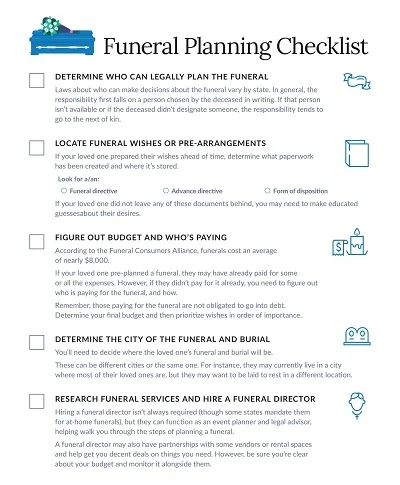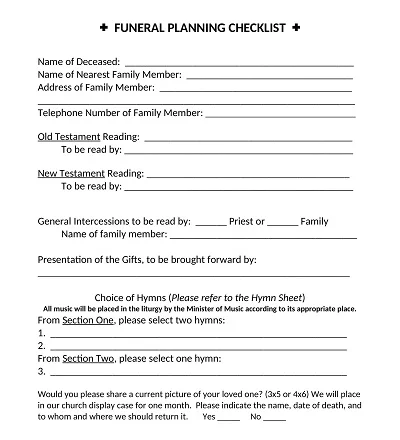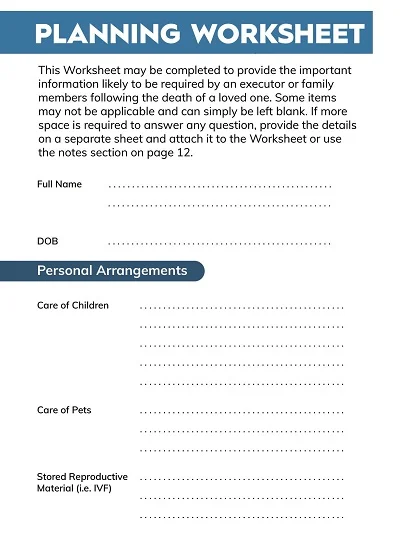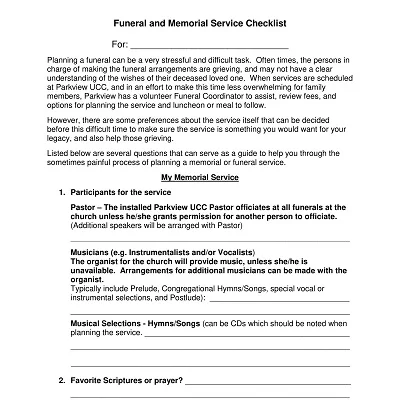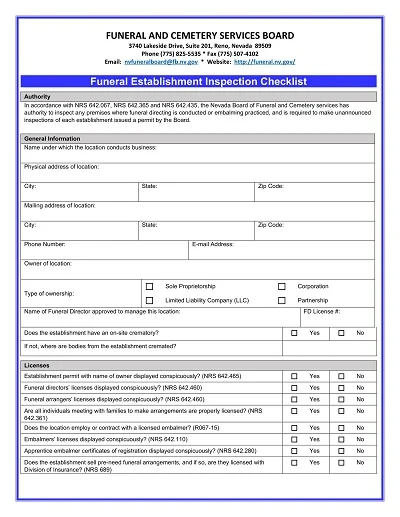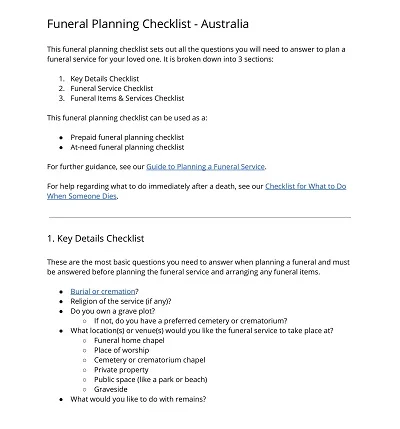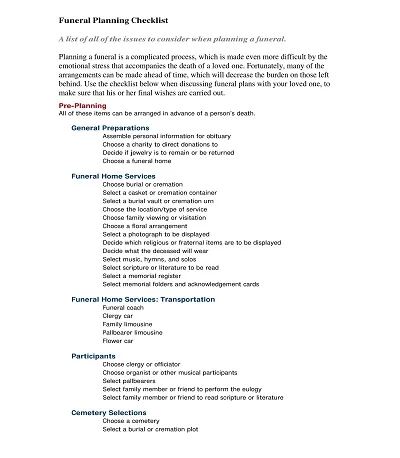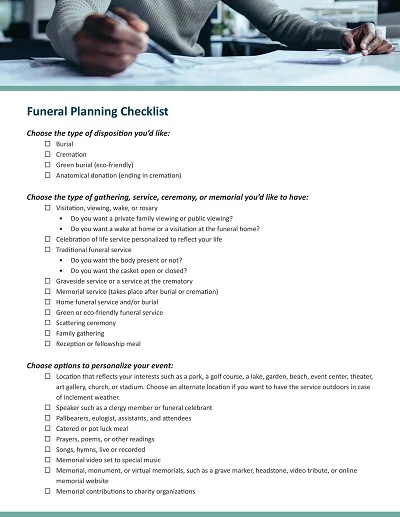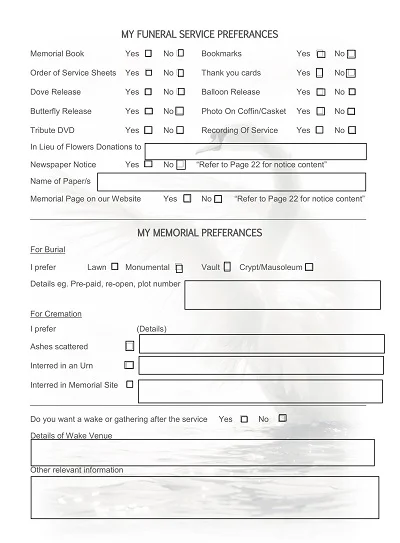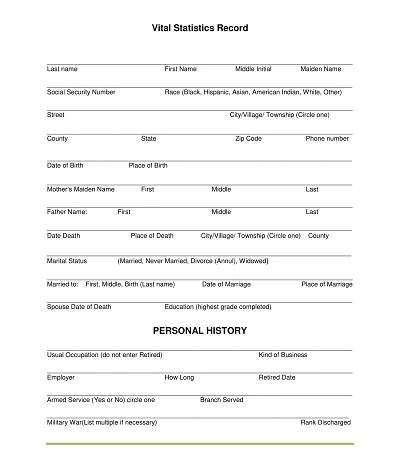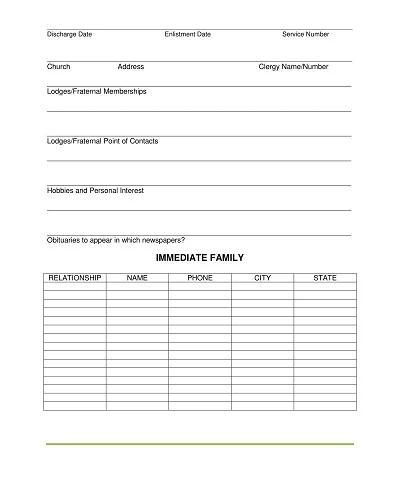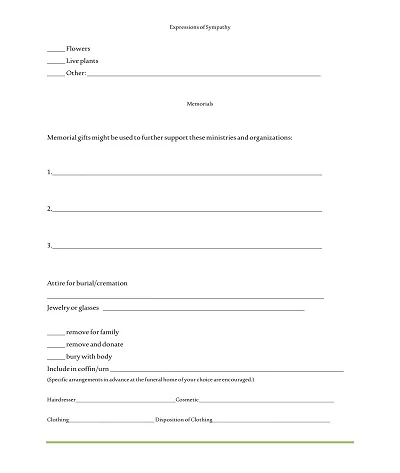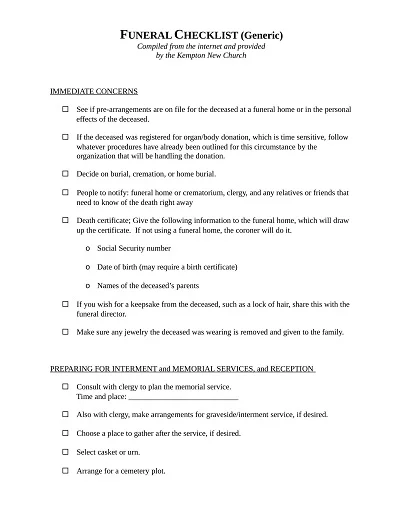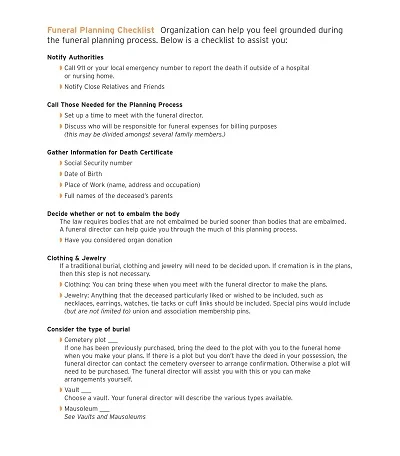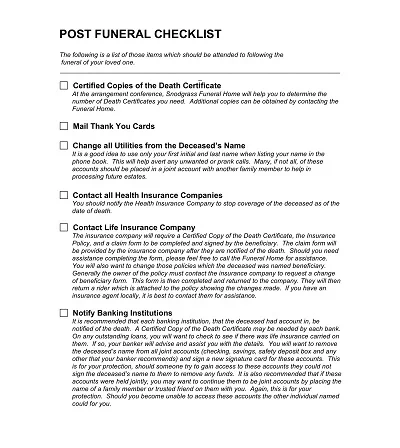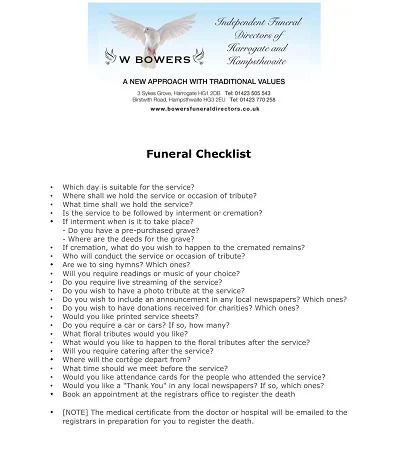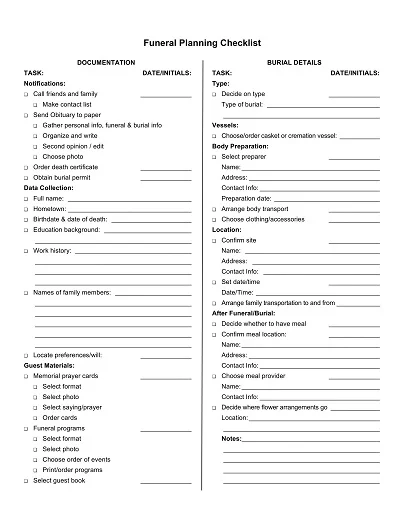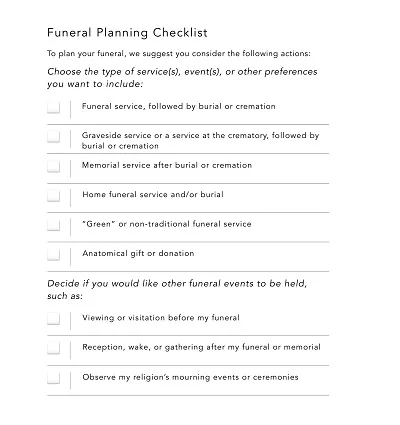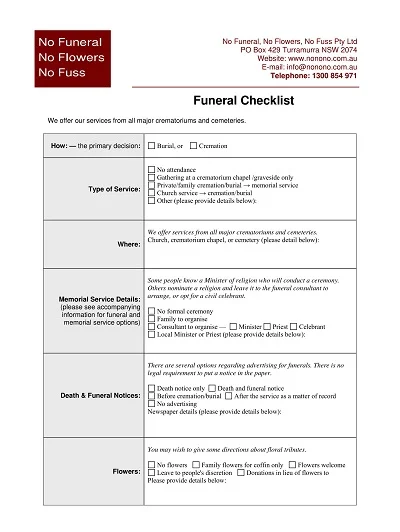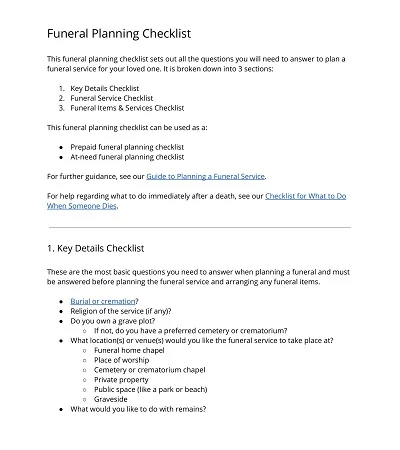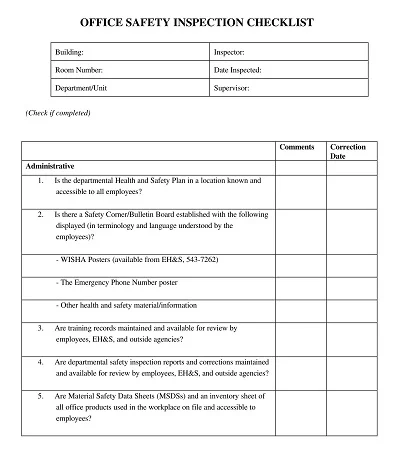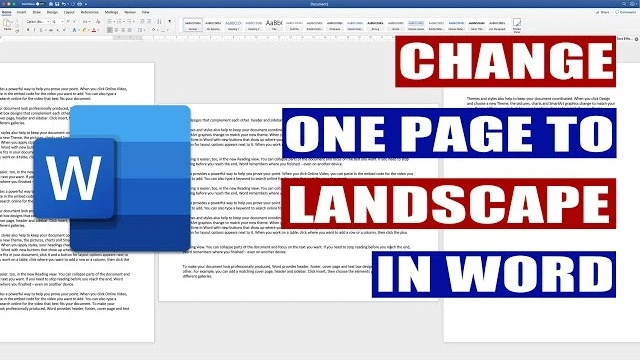A Funeral Planning Checklist Template is a tool that enables an individual, or maybe a third party who wants to organize a funeral for their dead loved one, to go through a systematic planning process.
This plan is normally accompanied by several sub-sections that outline all the do’s and don’ts of the funeral planning process, which include; the selection of funeral homes, selection of burial or cremation, selection of casket or urn, the funeral program or service, and the program for transporting individuals to the funeral among others.
It makes things less stressful during this tender phase in one’s life by avoiding missing out on some important funeral details.
Download Free Printable Funeral Planning Checklist Templates
What is a Funeral Planning Checklist?
A Funeral Planning Checklist is a document that guides the client on how to prepare for a funeral by listing down all the requirements, stages, documents, arrangements, and expenses, among others.
This checklist is very useful in coordinating the event’s commemoration and meeting every detail to fulfill the wishes of the deceased or the family during this important occasion.
Often, they encompass considerations on whether to bury or cremate, the choice of an undertaking firm, the kind of service to offer, and how to finance all these without forgetting other factors.
Purpose of a Funeral Planning Checklist
It should also be noted that the process of organizing a funeral can be a pretty stressful procedure due to emotional responses to it, which might be challenging during the grieving period.
A funeral planning checklist acts as an essential tool to:
- Ensure Organization: The software covers the many aspects involved in organizing a funeral, keeping one from being weary or contracting mistakes during such moments.
- Alleviate Emotional Burden: Culturally, having a list of instructions makes decision-making easier and minimizes the emotional burden on families/carers arranging the services.
- Honor the Deceased: This checklist enables one to develop a plan concerning funerals so that the funerals reflect and honor the deceased’s life.
- Facilitate Communication: It is used by the families to convey information to other players in the funeral service industry and vice versa, thereby creating a uniform understanding of the intended McCreery service.
Importance of Planning for a Funeral
Ways to support this include planning for a funeral, which is one central area that should receive immense focus due to the benefits of planning, especially for those who want their mom’s funeral to be perfect.
It could reduce the class on the family and friends during bereavement so that they can be no more burden, having to make decisions and also worrying about the expenses.
Financial Preparedness
Thus, special funds may be provided to ensure enough money for a funeral where necessary to avoid a financial burden on other family members. Some of those constructed plans or funeral insurance may guarantee the costs of the provided services at present price levels and thus against future inflation rates.
Personalization
Preparation for funerals ensures that the funeral service reflects on the deceased’s life and all the person’s choices. It allows one to decide on certain details, including scripture and hymns, providing a final tribute and remembrance.
Family Guidance
Preferences on whether to be buried or cremated, some religious and Nonreligious rites, and other matters that a person would wish to be done after his or her death can be communicated effectively since pre-planning helps surviving family members to know their preferences.
Legal Assurance
Scheduling also involves procuring legal documents that may include a will and estate power of attorney. This avoids disagreements and confusion in handling an individual’s affairs once dead.
Key Components of a Funeral Planning Checklist
When planning a funeral, several key components should be considered to ensure a respectful and smooth process:
- Notify Friends and Family: Let the relatives and friends of the deceased know about the death.
- Decide on Burial or Cremation: Among the things that one should put in place for their body upon their demise is the wish of the deceased concerning the handling of his or her remains.
- Select a Funeral Home: Lastly, choosing the right kind of facility depends on your pocket and choices or preferences.
- Organize the Service: Work out the details of the celebratory event, like where it will be held, who will speak, and which blessings/rites are necessary according to the culture/religion of the individuals involved.
- Arrange Transportation: Sometimes, this may be necessary, and one may have to organize somehow to transport the remains of the deceased and the mourners to the funeral.
- Choose a Coffin or Urn: Ensure an appropriate casket or such other container as is available for what is left of the deceased is decided.
- Create an Obituary: Make a funeral message containing a condolence statement to show the deserved respect to the deceased.
- Flowers and Decorations: A remembrance of the flower arrangement for services like posy or wreath and flowers used to decorate the casket.
- Music and Readings: Cohosts should clear any issues involved during the day, such as music or reading, that will be used in the ceremony.
- Legal Documentation: Complete the preliminary documentation requirements to obtain the death certificate and permits.
How to Create a Funeral Planning Checklist Template
A funeral planning checklist ensures that the people and events involved offer the best services to a deceased person by making a checklist template on which to base this process. The checklist should include the following key sections:
- Personal Information: Identity details of the person, namely, name, date of birth, and family contact details.
- Type of Service: Emphasis on interment or cremation of the remains and attendance at religious or secular ceremonies.
- Service Details: Who: the name of the couple, presiding minister, and witnesses. What: the venue, date, time, and minister performing the marriage ceremony.
- Final Resting Place: Eclipse of a burial plot of a preferred cemetery or selection of where the urn will remain.
- Obituary and Eulogies: Structural advice and information about how they will be written and by whom.
- Legal and Financial Documents: Accounts details of where the will, life insurance policies, and other essential documents are kept.
- Guest List: To whom should the service be advertised or be notified of the service?
- Special Requests: Specific books, songs, and flowers used in the service; any preference to be incorporated during the service.
These headings could be expanded into finer steps and choices so that each constituent part is approached reasonably and rigorously.

